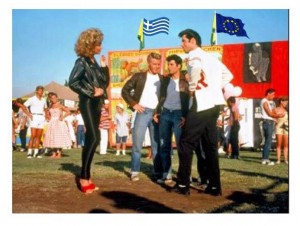September 2015 has provided a particularly intense reminder to many Torontonians of the power of images. We had only begun to confront the collective call to action that resounded from the heartbreaking photo of Alan Kurdi’s body face down on a Turkish beach when our downtown core was turned over to the 40th Annual Toronto International Film Festival. Though admittedly not as compelling as that already iconic still photo, the fare on offer from the skilled filmmakers presenting at TIFF provide their own array of clarion calls. Having only partaken of a small subset of the films on offer, my own compassion has been forever activated on issues as far flung as the emotional journey that must be confronted by transgendered children and adults and their families, the harrowing circumstances of child soldiers in Africa and the technical and personal challenges of rescuing our brave explorers on Mars (who knew?).
It is undeniable: the right image, at the right time, with wide distribution, can truly galvanize global opinion and become a catalyst for action. That is why we are inundated with such images, each one competing to be THE policy focus. For anyone that tries to be truly aware, it is relentless, and exhausting. Roused from the necessarily narrower focus of our day-to-day lives too often and too jarringly, we instinctively begin to respond to the initial shock by pounding the snooze button. We cannot engage with any one issue, the next is coming too fast on the heels of the last. When we focus even briefly to comprehend the complexity that defies simple solutions to urgent problems, our hearts quickly jerk our heads out of that important but taxing exercise to address the crisis revealed by the next compelling image.
The migrant crisis is a clear example of this challenge. The solution is not simple. The photo of Alan Kurdi has jolted Western nations into a consensus that we are obliged to act to address the Middle Eastern migrant crisis. However, many are realizing that the response cannot be limited to the relocation of those now so desperately seeking refuge. The enormous number of refugees willing to risk the perils of an unaided migration and the uncertainties of ultimate settlement will multiply exponentially with the appropriate and necessary creation of compassionate, streamlined and more certain relocation programs. Sadly, it is not possible to relocate the entirety of the at-risk populations of the failed states of the Middle East (Libya, Iraq and Syria) to Western nations. The appropriate global response must therefore also include diplomatic and, if necessary, military measures to restore stability and order in the region, which will likely require a regime change in at least Syria, …but wasn’t regime change in Iraq and Libya what got this all started in the first place…?
Hey, is that Omar Khadr on the TV, looking for some relief from his bail conditions? We have got to do something about Canada’s hypocrisy in its treatment of Canadian-born child soldiers.


